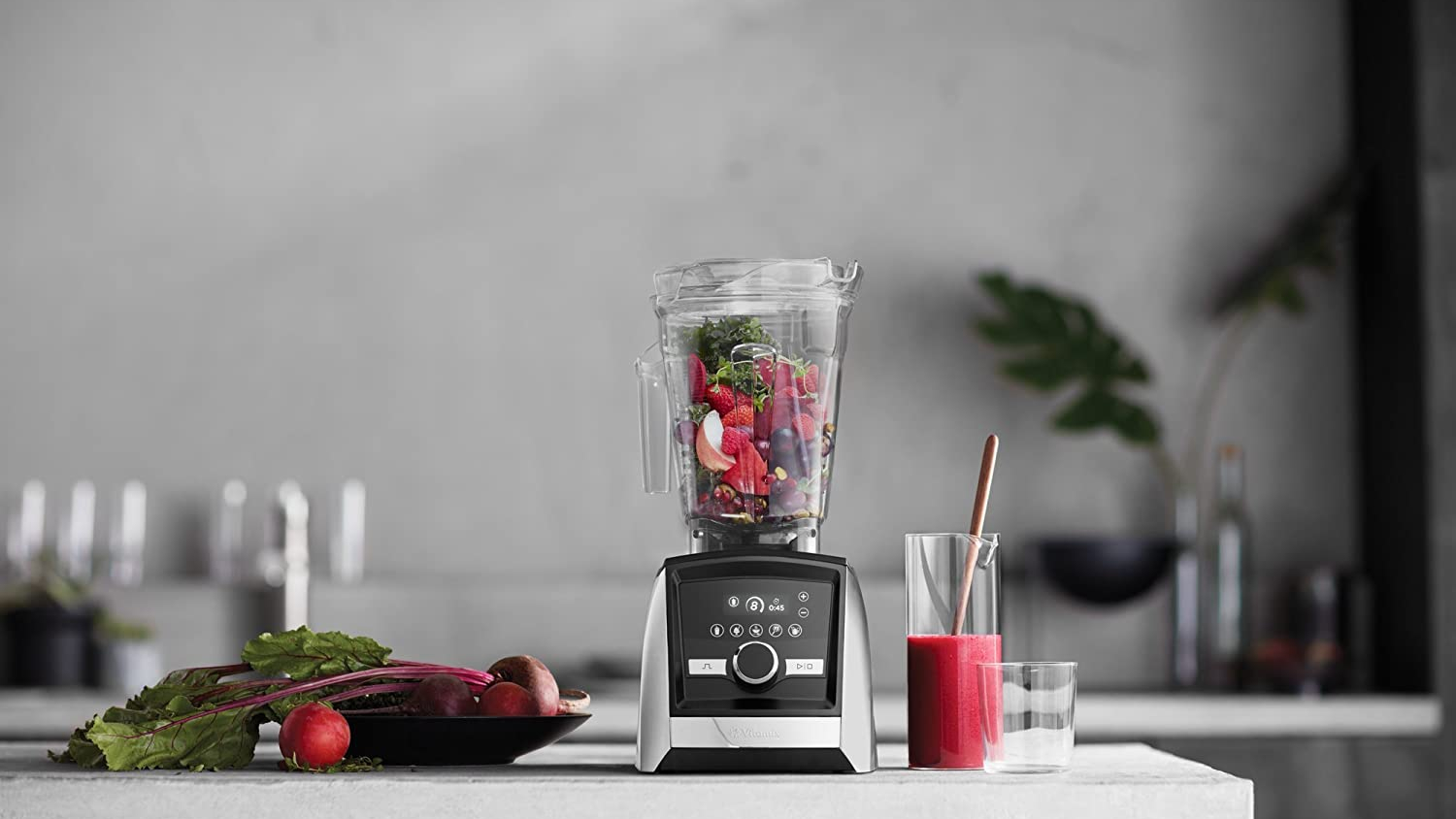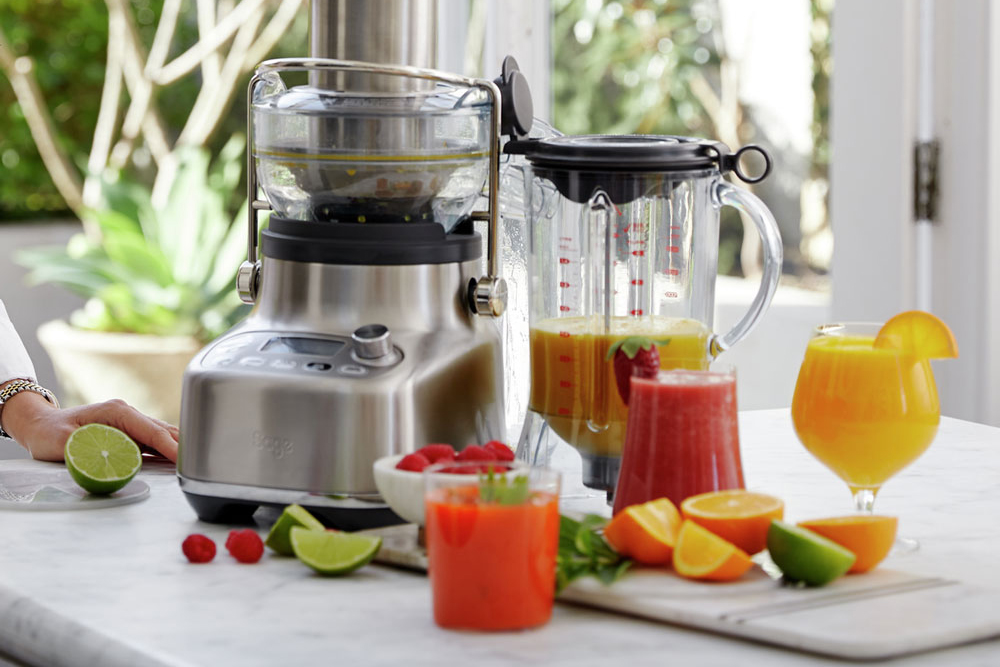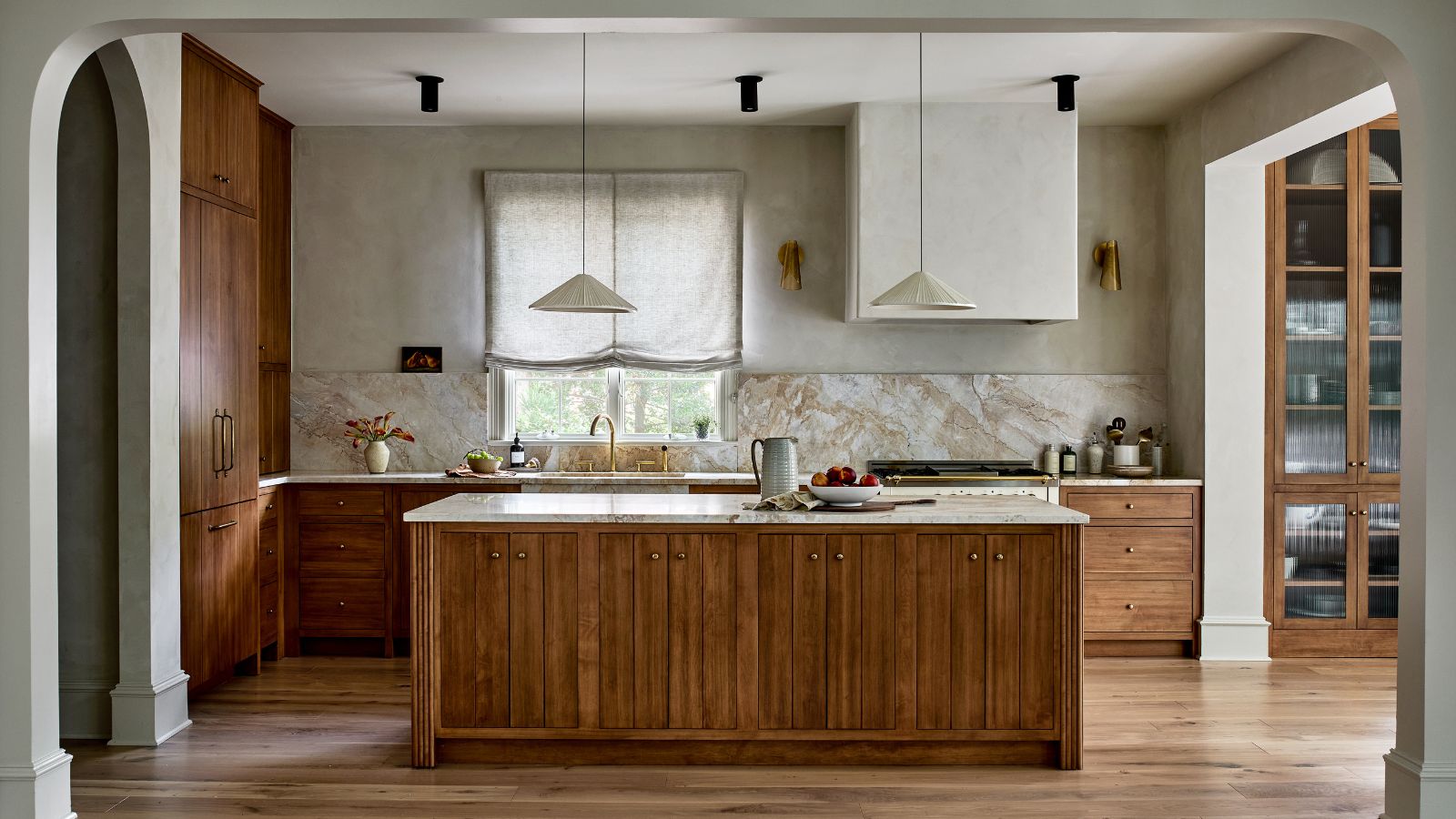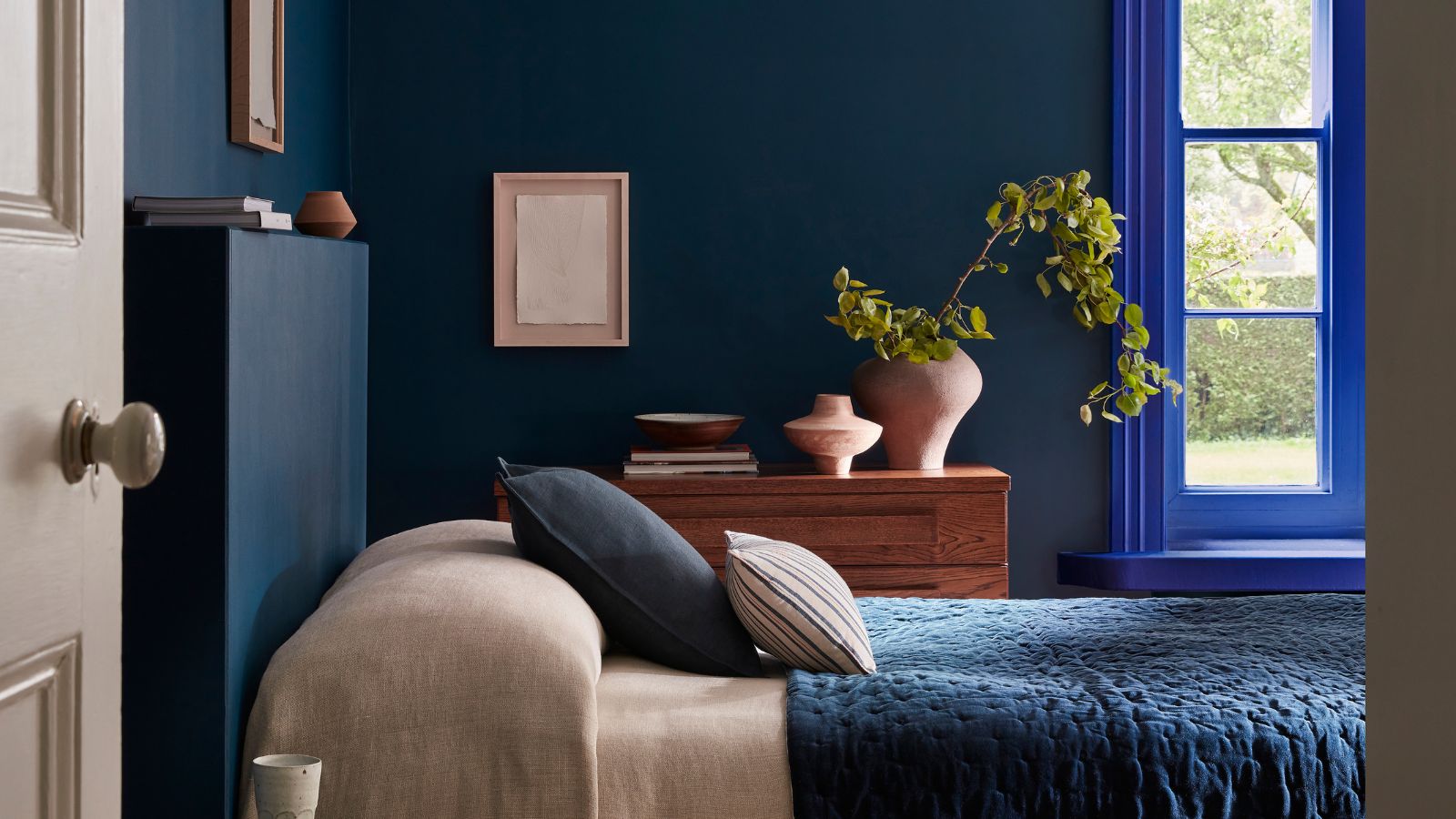Is juicing or blending healthier? Nutrition experts answer
Both juicers and blenders help you get in your servings of fruit and veg, but which will help you with your nutrition goals? We ask the experts


If you're on the verge of buying a new appliance, whether as a gift for someone else or to encourage yourself to adopt healthier eating in the New Year, you may wonder whether juicing or blending is healthier, and which will give you better nutrition.
When it comes to pitting juicers vs blenders on nutrition, the answer ultimately depends on your goals and dietary needs.
Blenders, which you will typically use for making everything from smoothies to soups to thicker dips and sauces, combine everything in the vessel – the pulp, skin, and seeds – into a smooth, homogenous mixture, which retains all fiber content and the original parts of the produce. Blended food may contain more calories and can keep you feeling full, too. Juicers, on the other hand, largely remove the pulp and fiber content, making the nutrient-packed drinks easier to digest and absorb, but aren't as filling. So, which is the healthier choice?
Are blenders healthy or do they destroy nutrients?

Own a blender rather than a juicer and you will add other healthy ingredients, from chia seeds to oats to vegetables, to everything from smoothies to soups.
'Blending a smoothie is an excellent option for those who are just transitioning to a healthy diet,' advises Ashley Dolan, founder of the website Vegiac, a site serving those who live a gluten-free and vegetarian lifestyle.
'Blending fruits and vegetables preserves all the original nutrients
found in the whole fruit, without separating the pulp. 'In this way, a so-called smoothie is obtained, full of fiber and vitamins, whose nutritional value is a boon for the body.'
'People will often argue the case that a blender is more nutritious because it blends up and uses all parts added to the vessel. This is true to a degree. And yes, if you add fiber-containing foods, the fiber will remain, and not be discarded/or left behind as with a juicer,' says Dr. Wendy Bazilian, an author, doctor of public health and nutritionist and owner of Bazilian’s Health in San Diego.
Fiber in whole fruit plays an important part in slowing your body's digestion of the sugar within it. Blending, however, makes it easier for your body to absorb that sugar. Our advice? Ensure your smoothies aren't fruit only to avoid sugar spikes.
It is worth investing in one of the best blenders when buying for nutrition. This is because cheaper blenders can produce heat from the blades, which can damage, if minorly, the vitamin content (vitamin A, some Bs, C, D, E and K) and minerals, such as magnesium and potassium. However, this damage is much less than, say, cooking in an oven.
Are juicers healthier or do you need the added fiber?

If you are looking for a low fiber diet, juicing will be more suitable for you. It delivers a nutrient rich drink that won't fill you up, unlike a smoothie. Ashley Dolan notes that juicing separates the pulp, including dietary fibers that help with metabolism, sugar absorption, and the feeling of satiety, resulting in a 'concentrated nutritional drink that is absorbed very quickly in the body and does not burden our digestive system'.
However, 'fruit juice can be all sugars, causing you to consume more calories than if you had eaten a single piece of fruit,' Ashley continues.
Her advice? 'If you want to juice for the health benefits, choose vegetables and leafy herbs. Chlorophyll, which is rich in green vegetables, fills our cells with oxygen, contributes to the better functioning of all organs, and gives us a portion of amino acids, antioxidants, vitamins, and minerals. It's not easy to eat 200g of spinach or a bunch of parsley all at once, but juicing with vegetables helps you unlock those benefits.
'There are some nutritious foods that you can juice that are trickier to blend – carrots, beets, ginger and other foods spring to mind.' Though, we have added all of these to a blender for a smoothie.
As when choosing a blender, you will always get the best nutrition for the best juicers. Considering a centrifugal versus a cold press juicer? Centrifugal juicers are a cheaper option and will heat up a little, just as cheaper blenders will. For the most nutritious juice, shopping for the best cold press juicer will be most beneficial, as these are well-equipped to extract juice from harder fruit and veg and can extract the most juice out of fibrous leafy greens, too.
The verdict?
Assuming you want a diet in high fiber, blenders are the healthier option; that said, if you don't have the stomach for a daily veg-filled smoothie or aren't likely to make your own soups, a juicer packed with leafy greens will deliver plenty of nutrients and juices are easy to consume.
'Eating the vegetable or fruit whole is "best"... but practically speaking, the way that you’ll consume them and regularly enough to enjoy and benefit from their nutrition is the "best",' says Dr. Wendy Bazilian, doctor of public health and nutritionist. 'So if you’re more likely to regularly enjoy some veg and fruit with juicing (or blending)… do that! Or a combo. And what’s convenient and easy to clean up matters, too.
'A blender blends all parts so all nutrients that go into it… come out poured into the glass. With a juicer, the fibrous material is "left behind". But the juice may be high and concentrated in other important nutrients. And a person may seek or get their fiber covered in other ways. A healthy diet is never composed of one food or meal type. Here: no different,' concludes Bazilian.
Sign up to the Homes & Gardens newsletter
Design expertise in your inbox – from inspiring decorating ideas and beautiful celebrity homes to practical gardening advice and shopping round-ups.

Jaclyn is H&G's eCommerce editor and oversees all things shopping. She's also a bonafide sleep expert, and previously managed all sleep content on Homes & Gardens and Real Homes– in fact, she has passed our five-step certification process to become a verified customer advisor on mattresses. She regularly scouts out the best of the best for buying guides to help you fill your home with only the best. She joined the team in January 2021. She has previously worked with Apartment Therapy, The Kitchn, The Spruce, The Spruce Eats, and MyDomaine. When Jaclyn's not working, she loves browsing real estate listings, unwinding with a chilled glass of Rosé, and entertaining her Cavapoo, Reese.
-
 This kitchen has been transformed from cramped and outdated to warm and welcoming – and it's all thanks to a few thoughtful Japandi-style features
This kitchen has been transformed from cramped and outdated to warm and welcoming – and it's all thanks to a few thoughtful Japandi-style featuresWarm wood tones, textural designs, and considered contrast are key to this beautiful transformation
By Molly Malsom
-
 This brilliant $4 drawer organizer helped me reclaim control of my chaotic underwear drawer – and turbocharged my mornings
This brilliant $4 drawer organizer helped me reclaim control of my chaotic underwear drawer – and turbocharged my morningsIt makes heaps of difference when I'm getting ready
By Chiana Dickson